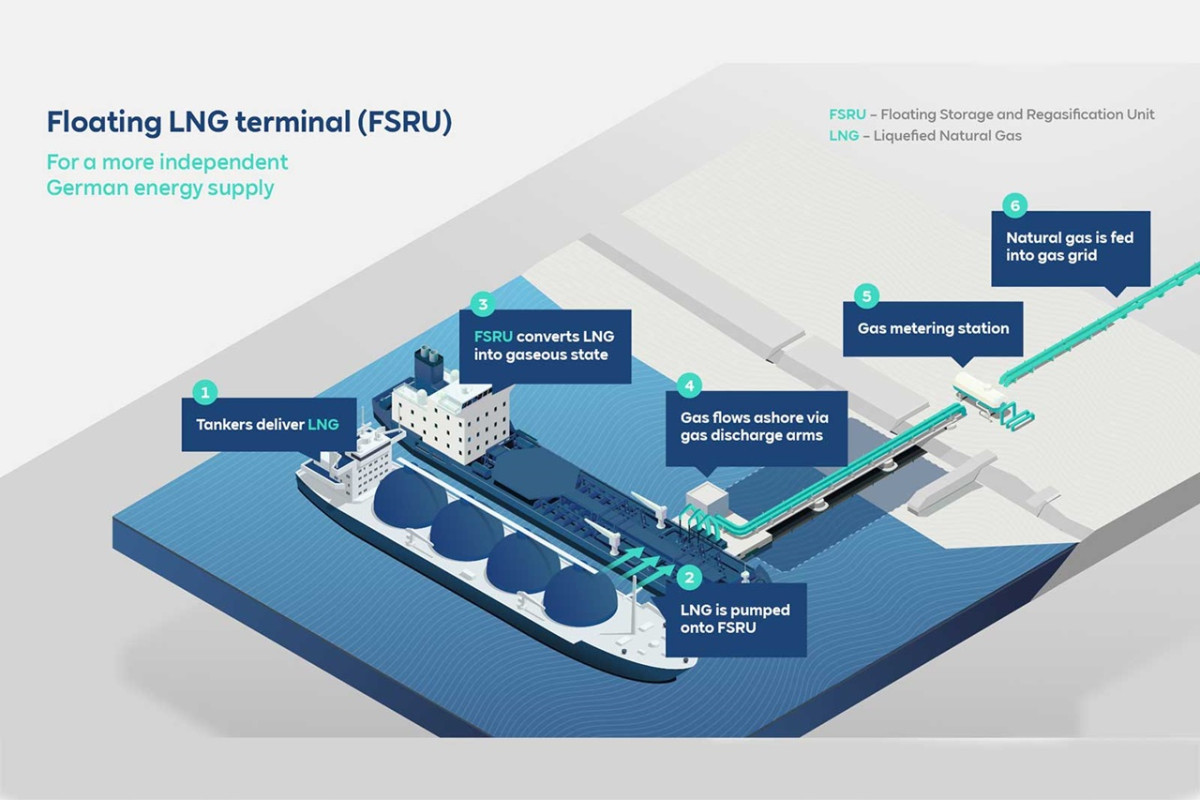Germany finishes construction of first floating LNG terminal
The first jetty for arrival of liquefied natural gas (LNG) has been completed in northern German Wilhelmshaven, with the first delivery set to arrive in mid-January 2023, reports broadcaster NDR following an announcement by Lower Saxony’s economy minister Olaf Lies. The jetty will allow the mooring of a special ship – a floating storage and regasification unit (FSRU) – that collects the liquefied gas from tankers and regassifies it before feeding it to the pipelines on land. This ship is set to arrive in Wilhelmshaven in mid-December. "This is a central building block for securing our energy supply in the coming winter," said economy minister Robert Habeck. The terminal will have an annual capacity of 7.5 billion cubic metres (bcm). Germany’s annual gas consumption stood at around 90 billion cubic metres until last year. The new infrastructure is to be designed with hydrogen in mind from the outset, “because in the medium term we will need to say goodbye to fossil fuels completely,” Habeck said earlier this year. However, researchers have said that a later conversion of LNG terminals to handle liquid hydrogen or derivates such as ammonia is subject to great uncertainties, for example on costs.
Germany ramped up the building of FSRUs by speeding up planning and construction of necessary infrastructure for direct imports. The war against Ukraine has elevated efforts to diversify Germany’s gas supply away from Russian deliveries to the top of the agenda. Germany has a well-developed natural gas pipeline grid and is connected to import terminals in neighbouring countries, but does not currently have its own port to receive LNG directly. In addition to one or more fixed onshore terminals, the government plans to lease five FSRUs in the short term. A sixth private project is also being developed. Climate activists have criticised Germany’s plans to directly import LNG, with Greenpeace saying it puts the country’s and European climate targets at risk and NGO Environmental Action Germany (DUH) saying the construction project in Wilhelmshaven threatens to destroy an underwater biotope and endangers harbour porpoises.

